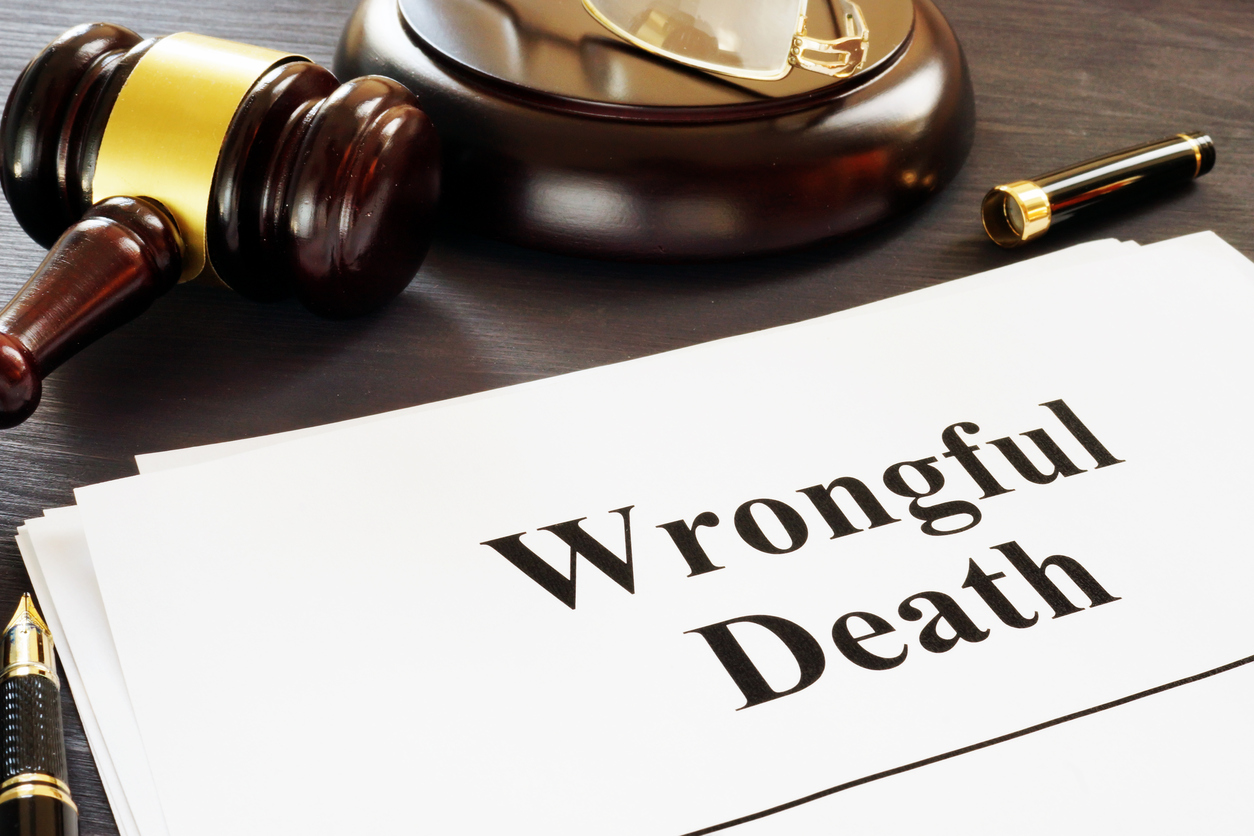
You must check if your wrongful death settlement is taxable if you’re still considering filing a wrongful death claim or are already in the process. Wrongful death settlements are a huge amount of money. Considering both state and federal laws is essential to the taxation of your settlement.
Read on to learn more about the taxation of your wrongful death settlement.
What Are Wrongful Death Settlements?
Wrongful death settlements arise from claims filed by the decedent’s family member(s) or spouse after the person dies under preventable circumstances caused by the defendant’s negligence or wrongful actions.
If claims don’t settle in attorney negotiations, you can file a lawsuit before your claim prescribes. Each state has different statutes of limitations. After the clock runs out, you can’t file any more claims.
Utah claimants must file a lawsuit two years after the decedent’s death. But that time frame shrinks to one year if the defendant is a government entity. Once the statute of limitations lapses, the window of opportunity permanently closes for anyone seeking.
How Are Wrongful Death Settlements Determined?
Not every wrongful death lawsuit seeks each one, but below are the types of awards from wrongful death claims:
Economic (Pecuniary) Damages
The first category, economic (or pecuniary) damages, includes quantifiable losses like health care costs and burial expenses.
Severe economic deprivation can decimate families if the primary wage earner gets killed by an at-fault party. The court then calculates the decedent’s future earning capacity when determining the settlement amounts.
Economic damages include medical expenses and other charges from a loved one’s accident, funeral and memorial costs and even the survivors’ lost inheritance.
Since there could be weeks or months between the negligent act by the at-fault party and the decedent’s death, the total for their medical bills could reach seven figures.
Non-pecuniary Damages
Non-economic damages are also vital elements of a wrongful death settlement, although these intangible losses are far more challenging to value but not subject to taxation.
Pain and suffering are two categories of non-economic damage awards in wrongful death cases. Courts assign a monetary value for pain and suffering the deceased person experienced during and after the incident up until their death. The more intense the pain and suffering, the higher the potential award for non-economic damages.
The total non-economic damage amounts include compensation for the decedent’s mental anguish. Spouses and close family members could file loss of consortium claims for the absence of companionship and emotional support they used to enjoy from their now-deceased relative.
Punitive Awards
Punitive damages serve a very different purpose than compensatory damages. Courts award punitive damages to plaintiffs far less frequently than compensatory damages. Punitive damages are economic repercussions for the defendant’s negligence that contributed to or significantly to the decedent’s death.
Courts are empowered to hold liable defendants financially responsible for the harm they caused. It ensures they experience negative consequences for the pain they inflicted on innocent families.
Punitive damages are effective deterrents for defendants and anyone considering cutting corners on dangerous job sites, flouting safety regulations, or placing others in harm’s way.
Compensatory Awards
The Internal Revenue Service (IRS) usually doesn’t tax compensatory awards. These awards are compensation for the victim’s losses that ended their life.
Plaintiffs aren’t taxed on reimbursements for the decedent’s hospital charges, final expenses, or other medical bills. There are also no federal income taxes due to the damage awards they receive for the physical and mental distress they suffered.
What Are the Exceptions to the Rule That Wrongful Death Settlements That Are Not Taxable?
Determining which percentage of a total award for damages is and is not taxable can be complex because the IRS considers some segments of wrongful death awards taxable.
Punitive Damages
Unlike other civil cases where plaintiffs owe income taxes on punitive damages from insurance companies or judgments from the courts, punitive damages in wrongful death cases are exempt from taxation.
It is further clarified in the U.S. Tax Code 26 U.S. Code § 104, which affirms that no income taxes apply to punitive damages awarded in wrongful death cases.
Accrued Interest
Not all wrongful death cases are won at the initial trial. But many plaintiffs do wind up prevailing at the appellate level. However, these appeals can drag on for years. Meanwhile, the interest accrues on judgments.
Damages first denied by the court might be reversed on appeal. Your award can include taxable pre- and post-judgment interest accrued while the case meandered through the courts awaiting adjudication.
Some Emotional Distress Awards
Instances of wrongful death can be devastating, not only to the victim but also to their survivors. As is sometimes the case, courts allocate a percentage of settlements to cover emotional distress.
Plaintiffs could owe federal income taxes on emotional distress settlements not directly attributable to illness or injuries connected to the victim’s death.
Expenses Previously Deducted by the Decedent
Settlement proceeds wouldn’t be taxable if plaintiffs took no itemized deductions on their federal taxes for health-related expenses connected to the fatal accident or event.
What Part of a Wrongful Death Claim Remains Tax-free?
Reimbursements for medical bills, burial expenses, and other accident-related costs are not subject to taxation. Also, plaintiffs don’t pay taxes on partial settlements awarded for pain, suffering, and property damage.
As a general rule, wrongful death lawsuits have no punitive damages. When a defendant’s breach of duty to care for the deceased person is especially egregious, the courts can award plaintiffs punitive and compensatory damages.
How Can Wrongful Death Beneficiaries Minimize Tax Consequences?
Plaintiffs and their attorneys cannot completely control the terms of a wrongful death judgment. But your wrongful death attorney can designate which percentage of the settlement is categorized under what type of damages.
Below are tactics that can maximize your settlement potential.
Ensure Allocation of Damages
An attorney drafts the wrongful death petition and seeks a more significant monetary award for nontaxable damages like the decedent’s pain and suffering.
Conversely, since any damage award for the survivors’ emotional distress is subject to taxation, plaintiffs’ counsel may avoid aggressively pursuing certain case elements.
Consider the Impact of Delays
Accrued interest boosts the eventual monetary award from the court. But the caveat is that if portions of that future award are taxable, the bill goes on the plaintiffs’ tab.
Think Long-term To Minimize Taxes
Have the defendants made any reasonable offers to settle the case? You may be entitled to your day in court, but it could cost you dearly.
You want the best settlement possible, but no court case is a guaranteed win for either side. You might wait for a judgment that may never materialize.
Is it worthwhile to accept settlements when you’re in financial distress? Possibly, if you worry about interest increasing your tax debt.
Wrongful death award funds aren’t taxable when part of a settlement-funded annuity. Structured settlements often have more tax-friendly advantages than lump-sum payouts. You can maximize your award with a structured settlement disbursed incrementally over time.
Plaintiffs often invest their lump-sum payments in real estate, stocks, or Bitcoin. But tax exemptions disappear if they liquidate the annuity.
Can More Than One Family Member File a Wrongful Death Claim?
Yes. Multiple claims are common but not always necessary. Some families divide the proceeds. Separate claims may work best when a parent dies with minor children from two or more partners.
It is possible to file more than one claim against a defendant. You may file a wrongful death claim against the defendant and other claims that do not pertain to the wrongful death claim.
Wrongful death claims typically have higher compensation than other claims. When attorneys file multiple claims against defendants, clarifying which settlement amount goes with each claim is helpful. You don’t have to pay taxes on that portion of the wrongful death claim.
How Can a Wrongful Death Attorney Help?
It is stressful and emotional if you are a surviving spouse or family member of someone who died because of a liable party’s negligence. Many survivors aren’t thinking clearly and make the wrong moves.
Your wrongful death lawyer streamlines the litigation process, allowing you time and space to heal.
Contact the Wrongful Death Lawyers at Parker & McConkie Today
For more information, please contact an experienced wrongful death lawyer at Parker & McConkie to schedule a free initial consultation today. We have 5 convenient locations in Utah, including Midvale, Salt Lake City, Ogden & Provo, UT. Clients can also visit our offices in Idaho Falls, ID & Rock Springs, WY.
We proudly serve Weber County, Utah County, Salt Lake County in Utah, Bonneville County in Idaho, Sweetwater County in Wyoming , and its surrounding areas:
Parker & McConkie Personal Injury Lawyers – Salt Lake City Office
466 S. 500 E., Suite 100,
Salt Lake City, UT 84102
(801) 851-1202
Hours: 24/7
Parker & McConkie Personal Injury Lawyers – Midvale Office
7090 Union Park Ave, #160,
Midvale, UT 84047
(801) 845-0440
Hours: 24/7
Parker & McConkie Personal Injury Lawyers – Ogden Office
2510 S Washington Blvd, Suite 160,
Ogden, UT 84401
(385) 402-8187
Hours: 24/7
Parker & McConkie Personal Injury Lawyers – Provo Office
37 E Center St, Suite 300,
Provo, UT 84606
(801) 876-4107
Hours: 24/7
Parker & McConkie Personal Injury Lawyers – Rock Springs Office
531 N Front St,
Rock Springs, WY 82901
(307) 205-7400
Hours: 24/7
Parker & McConkie Personal Injury Lawyers – Idaho Falls Office
2235 East 25th St. Suite #280,
Idaho Falls, ID 83404
(208) 418-0633
Hours: 24/7



